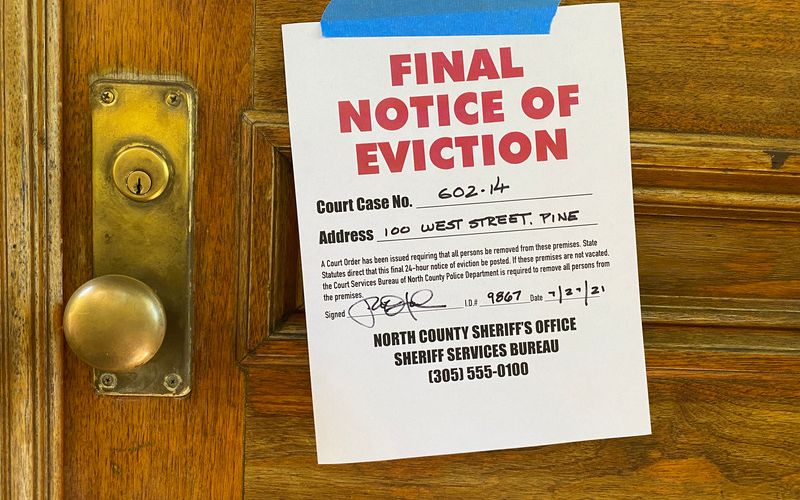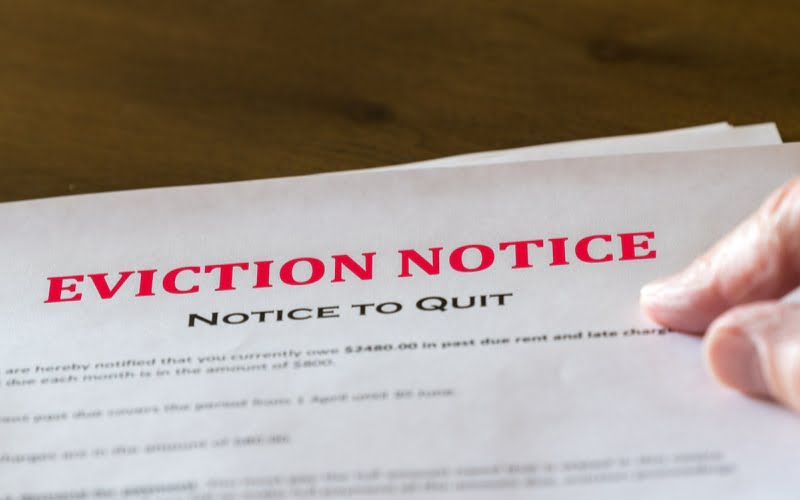Last Updated on March 18, 2024 by Kelvin Nielsen
Most landlords in Arkansas require tenants to pay a security deposit as part of the move-in costs. The purpose of the deposit is to cushion the landlord against certain potential negligent actions the tenant may take during the tenancy.
An example is causing damage exceeding normal wear and tear.
On your part as a landlord, you have an obligation to abide by the Arkansas security deposit laws. The following is everything you need to know in this regard.
Arkansas Security Deposit Laws
1. Security Deposit Limit
There is a limit to how much security deposit you can charge a tenant in Arkansas. The maximum limit is 2 months’ rent. If you’re renting out a home priced at $1,000 a month, you must not ask the tenant to pay a security deposit exceeding $2,000.
2. Non-Refundable Security Deposit
No, as a landlord in Arkansas, you must not charge a non-refundable security deposit. Any deposit you collect from your tenant must be refunded to the tenant, less, of course, normal wear and tear.
3. Additional Pet Deposit
Yes, you can! However, the tenant’s total security deposit amount must not exceed the state limit of 2 months. You cannot exceed the limit by giving the deposit another name like “pet deposit” or “damage deposit.” This would be illegal.
The law also prohibits landlords from charging pet rent.
If you charge a pet deposit, ensure you exempt service dogs or emotional support animals. Why? These animals are not pets; they are working animals. They are trained to assist disabled people.
As such, charging a tenant extra for having a service animal would be illegal. The Arkansas Fair Housing Act requires that landlords treat disabled tenants equally and fairly regardless of certain protected classes which include “disability.”
4. Security Deposit Receipt
In some states, landlords are required to provide their tenants with a receipt to acknowledge receipt of the tenant’s deposit. This is, however, not the case in Arkansas.
You have no obligation to notify your tenant after receiving their deposit. Nevertheless, it’s still something that savvy landlords do for documentation purposes.
5. Holding a Tenant’s Security Deposit
A number of states have laws that dictate how landlords must store their tenants’ security deposits. The state of Florida, for instance, requires that landlords store their tenants’ deposits in either of three ways.
That is, in a normal account, an interest-bearing account, or post the deposit as a surety bond. What’s more, the accounts must be separate from personal funds.
This is, however, not the case in Arkansas. You can commingle the funds, store them in an interest-bearing account, or whichever manner you like.
6. Security Deposit Deductions
You can make the following deductions from your tenant’s security deposit in Arkansas.
- Unpaid rent
- Late fees
- Costs arising from a lease violation
- Costs of fixing damage exceeding normal wear and tear
There is no legal limit to how much deductions you can make on such costs. The only requirement is that they be reasonable. And if the deposit isn’t enough to cover such expenses, you may be able to seek additional damages from the tenant.
7. Security Deposit as Last Month’s Rent
Arkansas law doesn’t forbid tenants from using the security deposit as last month’s rent. If you want to forbid it, however, you must have a clause that expressly states it’s a violation of the lease to do so.
8. Security Deposit Refund
You have a maximum of 60 days to return the tenant’s deposit after the expiry of the lease. If you have made any deductions, then you must provide the tenant with an itemized statement as well.
The method of sending the deposit must be through first-class mail.
It’s the tenant’s responsibility to provide you with a forwarding address. If the tenant fails to do so, then you’ll have to store the deposit for a maximum of 180 days. After 180 days, you’ll no longer have any responsibility to refund the deposit back to the tenant. The deposit will be yours to keep.
9. Change of Property Ownership
If the ownership of the property changes hands, then it’ll be the new landlord’s responsibility to abide by Arkansas security deposit laws.
10. Illegal Withholding of a Tenant’s Security Deposit
Doing this can subject you to a number of penalties. The penalties include:
- Paying the tenant double the wrongfully withheld amount. If you have withheld $1,000, for instance, then you may be ordered to pay $2,000.
- Being held liable for the tenant’s attorney fees.
- Being held liable for the costs of the suit.
Usually, disputes involving the return of security deposits are usually filed in a small claims court.
Frequently Asked Questions on Arkansas Security Deposit Laws
Q: What rights do tenants have in Arkansas?
A: Just like other states, Arkansas tenants have a number of rights under Arkansas Code Title 18 Chapters 16 & 17. Here is a comprehensive guide to get you started.
Q: What are landlords responsible for in Arkansas?
A: Once a lease is established in Arkansas, both parties acquire certain responsibilities. State law obligations tenants to do things like:
- Keep the unit clean and sanitary.
- Not disturb other neighbors or tenants.
On your part, you’re to treat the tenant fairly, and evict the tenant judiciously, among other obligations.
Q: Is Arkansas a landlord-friendly state?
A: Yes! Arkansas is one of the most landlord-friendly states in the country. Here is a guide.
Q: What can a landlord not do in Arkansas?
A: A lot actually! You cannot raise the rent during a lease term, self-evict a tenant, withhold the return of a security deposit, or enter your tenant’s unit without advance notice or a legitimate reason. Here is a full list.
Conclusion
It’s important to familiarize yourself with the Arkansas security deposit laws when renting out a property in the state. Ignorance of the law is never a defense in any court.
Disclosure: The content herein isn’t a substitute for advice from a professional attorney. It’s only meant to serve educational purposes. If you have a specific question, kindly seek expert attorney services.
Sources: https://arkansasag.gov/consumer-protection/home/landlord-and-tenant-rights/, https://law.justia.com/codes/arkansas/2015/title-18/subtitle-2/chapter-16/subchapter-3: Ҥ 18-16-304., Arkansas Code Title 18 Chapters 16 & 17

Hi, I’m Kelvin Nielsen, an experienced landlord and accomplished real estate lawyer. My focus is on answering your questions about renting in the hopes of making your life as a renter or a landlord a bit easier.







